Fred Thompon’s Announces his Candidacy for President
He appeared on Jay Leno last night, I am posting it here in case you missed it and wanted to see it.
Fred Thompon’s Announces his Candidacy for President
He appeared on Jay Leno last night, I am posting it here in case you missed it and wanted to see it.

Hearing him always made me cry, but tonight was different. I cried because the world just lost one of it’s greatest talents. Rest In Peace Luciano ~ Wild Thing!
Luciano Pavarotti Dies at Age 71, Manager Says
Fox News
ROME — Luciano Pavarotti, whose vibrant high C’s and ebullient showmanship made him one of the world’s most beloved tenors, died Thursday, his manager told The Associated Press. He was 71.
His manager, Terri Robson, told the AP in an e-mailed statement that Pavarotti died at his home in Modena, Italy, at 5 a.m. local time. Pavarotti had been diagnosed with pancreatic cancer last year and underwent further treatment in August.
“The Maestro fought a long, tough battle against the pancreatic cancer which eventually took his life. In fitting with the approach that characterised his life and work, he remained positive until finally succumbing to the last stages of his illness,” the statement said.

This is really something, it must have taken a lot of work to put together. It was done by David Horowitz.
Here is the ……LINK.
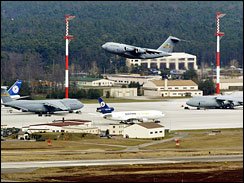
Germans Arrest 3, Thwart “Imminent Threat”
cbs news
Three men have been arrested for planning attacks on Frankfurt’s international airport and the U.S. military base in Ramstein, the German Defense Minister said Wednesday.
“There was an imminent threat,” Franz Josef Jung told Germany’s ARD broadcaster. He declined to elaborate.
Two of the suspects had German citizenship while the third was Pakistani, Germany’s Sudwestrundfunk public broadcaster said.
German federal prosecutors said they had arrested three suspected members of “an Islamic motivated terrorist organization.” It was not immediately clear whether the three were suspected of having links to al Qaeda.
Sudwestrundfunk said the men were arrested Tuesday evening and were close to carrying out the attacks. German and U.S. officials have warned of the possibility of a terrorist attack, and security measures have been raised, they said.
Government sources told the AFP news agency that the three had links to Pakistan and had been experimenting with explosives and trying to build car bombs.
German television reported that explosive materials had been found in an apartment in a town in the northern state of Hesse. It said ” the planning was at an advanced stage.”
Two of the suspects were Germans who had converted to Islam while the third held Turkish and German passports.
The arrests come a day after Denmark’s intelligence service arrested eight Islamic militants linked to leading al Qaeda figures in anti-terror raids in the Danish capital, according to the head of the agency.
The men, between ages 19 and 29, were suspected of preparing a terror act involving explosives, said Jakob Scharf, the head of Denmark’s PET intelligence service.
BERLIN, Germany (CNN)
“At U.S. European Command in Stuttgart, Capt. Jeff Gradec said German authorities had alerted them of a possible terrorist threat to American installations, but not specifically Ramstein. Suspects said to be part of an “Islamist-motivated terrorist group”
And this from Forbes.com
UPDATE: Germany: 3 Terror Suspects Arrested
“German and U.S. officials have warned of the possibility of a terrorist attack, and security measures have been increased. Navy Capt. Jeff Gradeck, spokesman for the U.S. military’s European Command in Stuttgart, said German authorities had contacted them concerning the alleged plot, but had no further information.
“We extend our gratitude to Germany for their efforts in protecting us,” Gradeck said.
The group had been under observation by authorities for many months and all three men are considered radical Islamists with contacts to terror cells abroad, Der Spiegel reported online.
Authorities decided to move in on the group after members were observed moving a stock of chemicals easily obtainable in Germany, but which can be used for making a bomb, from a storehouse to another, Der Spiegel said.”

Wild Thing’s comment……..
I wonder when we’re going to get around to banning Islamic immigration? Just wondering…….
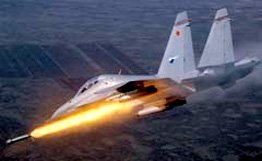
Malaysia to receive brand-new Russian SU-30MKM fighters
MOSCOW. (Yury Zaitsev for RIA Novosti)
Malaysia will receive the first 12 of its order of 18 Sukhoi Su-30-MKM Flanker fighters, the most advanced versions of the Su-27 warplane, before the year is out. The Su-30-MKM embodies the best achievements of the Russian aircraft industry and has the most advanced European avionics.
The Malaysian version is based on the Su-30-MKI, earmarked for India, but features different equipment and an electric remote control system.
Reports of sale to Iran of Su-30s rattle Israelis
Geostrategy
Russia’s arms export agency Rosoboronoexport disclosed recently that it plans to sell Iran up to 250 advanced Su-30 fighter bombers, dramatically increasing the power projection capability of Iran and possibly giving it a nuclear delivery vehicle other than missiles.
The sale was disclosed at the Paris Air Show and reports stated that the sale could include advanced S-300 air defense missiles as part of a modernization aimed at upgrading the aging Iranian air force.
U.S. sources said the sale of Su-30s in such large numbers to Iran would open up sales to Iran of Chinese versions of the jet, known as the J-11 that would include new precision guided missiles and munitions that the Chinese are building for its aircraft.
Iran may also purchase Il-78 refueling tanker aircraft that would be part of the long-range aerial assault capability.

Wild Thing’s comment……..
Well these that Iran is going to buy could be Raptor food maybe. Putin is first and foremost KGB, and Israel has a right to be rattled. Also this is very short-sighted on Russia’s part, the Iranian government is not trustworthy. Well heck few governments are, so I better take that part back. haha
Excerpt From Ghosts of Anbar, Part III of IV A Model for Success ~~ The Persuasive Power of Character
written and presented by Michael Yon
This footage shows SSGT Rakene Lee, USMC, as he clears a culvert under a road that is in the area where an IED has reportedly been planted. It was taken by writer/photographer Michael Yon, while embedded with US Marines in Anbar Province. It is included in the 4-part “Ghosts of Anbar” dispatch and is best viewed within that context.
Read the full article here
From Michael’s reporting:
Back in 2005, many Iraqi Soldiers and Police preferred to hide their identities.Today it seems that most Iraqi Soldiers and Police want their photos taken. Their confidence is growing and their attitude toward the terrorists is increasingly one of being more the hunter than the hunted.
Now I started to understand why the Army officers had been telling me the Marines are more advanced in counterinsurgency.
Normal Marines have morphed into doing vintage Special Forces work. Many of our Army units are excellent at this work, but the Marines, at least these particular Marines, did seem to have an edge for it.
They were even studying Arabic in their filthy little compound. Lightweight study, but they were showing the Iraqis they were making the effort. The Iraqis appreciated it. I have yet to see an Army unit undertake such a clear effort to learn Arabic.
The Marines there live in disgusting conditions. They have two toilets. One is a tube. For more serious business, there are the small plastic baggies called WAG bags. Do your business, seal it up and put it into a garbage can. They don’t complain.
Iraqi Soldiers and Police constantly emulate Marines and Soldiers. When he got back from missions, SSG Lee would work out. The Iraqis would watch and start doing their own exercises. This form of mentoring happens naturally because Lee is just being Lee, and the young Iraqis see it and want to be it.
It’s a cultural touchstone. A man like SSG Rakene Lee is not someone they would overlook. Physically, the man is amazingly strong. But what is most amazing is the strength of his moral fiber. Whatever the man talked, he walked. After all of al Qaeda’s false promises, the people here have learned a hard lesson about the true value of character.
U.S. forces start with a built-in challenge because of their reputation for accomplishment, what some call the “man on the moon syndrome.” This refers to the expressed disbelief that a nation able to put a man on the moon cannot quickly restore basic services. U.S. agencies trying to fan enthusiasm for their efforts should avoid making unrealistic promises.
In some cultures, failure to deliver promised results is automatically interpreted as deliberate deception, rather than good intentions gone awry. In other cultures, exorbitant promises are normal and people do not expect them to be kept. Effective counterinsurgents understand local norms; they use locally tailored approaches to control expectations.
Managing expectations also involves demonstrating economic and political progress to show the populace how life is improving. Increasing the number of people who feel they have a stake in the success of the state and its government is a key to successful COIN operations. In the end, victory comes, in large measure, by convincing the populace that their life will be better under the HN government than under an insurgent regime.
Over the next several days, I saw how much the Iraqis respected Rakene Lee and the other Marines who were all courageous, tactically competent, measured, and collectively and constantly telling even the Iraqis to go easy on the Iraqis.
Over days of operations, I found Lieutenant Hamid to be courageous, intelligent, and with natural leadership abilities. Hamid asked me to publish his photo. He said he wants al Qaeda to come to Sadr City and look for him.
One night, after a long day out in the sun, when we were all were exhausted, I sat talking with Hamid. He told me how he’d lost his girlfriend of two years.
She’d been studying banking in Baghdad, and when Hamid told her of his intentions to join the Iraqi Army, she replied that not only would she not marry him, but that she would break up. He said it was a very tough decision. Hamid’s father had been a soldier in Saddam’s Army, as had other relatives including uncles, some of whom died fighting.
When he told his girlfriend that he must go to the Iraqi Army, she left him. He told me, with remarkable sadness, “Women are crazy.”
Hamid said that he was so sick for two weeks he could hardly eat, and finally he went to a hospital and a doctor gave him an IV. When Hamid returned to duty, he decided he would be a soldier for life and might not ever get married. And then he said it again, “women are crazy,” but this time we laughed.
The Marines and his own commanders think highly of Hamid.

Wild Thing’s comment……..
Thank you Michael for bringing us this great progress on the ground .. one soldier .. one heart .. at a time. God bless our troops and keep them safe.
 …………………..
…………………..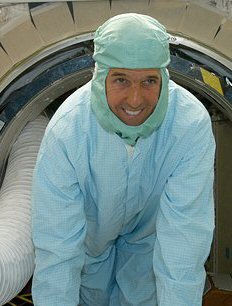
Gown for Female Muslim Patients …………………………………… Hanoi Kerry

Modesty gowns for female patients
BBC news
A gown designed for female Muslim patients who wish to preserve their modesty for religious reasons is being introduced to hospitals in Lancashire.
The £12 outfits – made in Yorkshire – cover the entire head, neck and body, leaving just a slot for the eyes.
The burqua-style gowns come with trousers, two styles of head-dress and elasticated cuffs to prevent women’s arms from being revealed.
Karen Jacob, linen services manager at Lancashire Teaching Hospitals, came up with the idea.
She said: “I noticed a gap in the market and thought that it would be great if there was a gown that helped to preserve a patient’s modesty.”
The gowns are believed to be a world first – and TrusTECH, the NHS organisation which manages innovation for the North West NHS – has the patent.
It means the market for the gowns among the globe’s billion-plus Muslims is immense.
Tim Meadows, customer service manager for Interweave, the West Yorkshire-based firm which makes the garments, believes the demand for the gowns could be huge.
“We think there is a large market out there,” he says.
“We hope it will be a success. We have invested a lot of time and money.”
.

Wild Thing’s comment……..
LOL My first thought was that photo of Kerry when I saw this story. hahaha
That thing has to create problems with breathing while the patient sleeps. And speaking of breathing, it seems like a liability because if the patient does stop breathing, when the patient becomes cyanotic you won’t be able to tell. Except for looking at the hands, but if they are under a blanket or something like that….hmmmm It just does not make sense to me. If the patient has IV’s, where are you going to put them and how are you going to moniter the injection site?
The Commander-in-Chief along with the Secretary of Defense, Secretary of State, and many high ranking generals, gave a speech to the troops in a surprise visit to Iraq. The sound is somewhat distorted by some of the applause and cheers from the troops in the audience
Bush Makes Surprise Visit to Iraq
AL-ASAD AIR BASE, Iraq (AP) …..for complete article if you can stand the typical liberal writings of this article
President Bush made a surprise visit to Iraq on Monday, using the war zone as a backdrop to argue his case that the buildup of U.S. troops is helping stabilizing the nation.
The president secretly flew 11 hours to Iraq as a showdown nears with Congress over whether his decision in January to order 30,000 more U.S. troops to Iraq is working. He landed at an air base in Anbar province west of Baghdad.
Next week, Gen. David Petraeus, the top U.S. commander in Iraq, and Ryan Crocker, the U.S. ambassador in Baghdad, testify before Congress. Their assessment of the conflict, along with a progress report the White House must give lawmakers by Sept. 15, will determine the next chapter of the war.
Bush stopped in Iraq ahead of his visit to Australia for an economic summit with Asia-Pacific leaders. The trip was a closely held secret for obvious security reasons.

Wild Thing’s comment……..
To our troops, we’re proud of you and will never forget your courage and sacrifice.
Other links to this stoyr along with the one I used at the top with the article:
Fox News and has photos
Yahoo News and also photos and video

Today is a day to honor all who work,
but I’d like to say a special thanks to our brave men and women
in the Armed forces, who work long,
hard hours each and every day to keep us safe and
to make sure we keep all that is so important to us.
I would also like to thank all workers for their hard labor
and in making this country still the BEST in the world.
I would also like to take a minute of silence to honor those
who have given their
lives in the line of duty. God Bless them
God Bless all of you, our men and women of the
Armed Forces and GOD BLESS THE USA.
Have a safe and wonderful day!
Wild
Thing
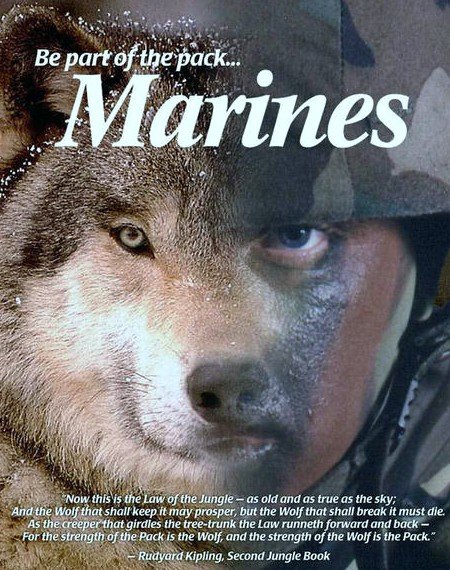
 ….Thank you to SSgt Steve, USMC for this awesome graphic you see at the top of this post.
….Thank you to SSgt Steve, USMC for this awesome graphic you see at the top of this post.
.
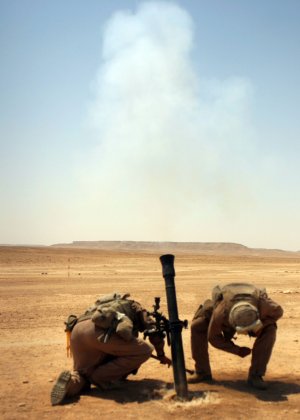
Smoke bellows from an 81mm mortar tube while Marines with Mobile Assault Platoon 3, Weapons Company, Task Force 1st Battalion, 4th Marine Regiment, Regimental Combat Team 2, cover themselves for protection during a Fire Support Coordination Exercise here. Many Marines were new to forward scout observing and firing from a mortar tube. Photo by Cpl. Eric C. Schwartz.
Anatomy of TF 1/4’s indirect firepower
By Cpl. Eric C. Schwartz
2nd Marine Division
CAMP AL QA’IM
The ground shook ferociously as the 81 millimeter mortar round ripped through it, propelling debris everywhere and destroying any living thing in its area of impact. Forward observers up on a hill viewed this destructive force through their binoculars, ready to call in air support.
Weapons Company, Company C, and Headquarters and Support Company, Task Force 1st Battalion, 4th Marine Regiment, Regimental Combat Team 2, proved their devastating capability of denying any offensive against Camp Al Qa’im during the Fire Support Coordination Exercise.
“It’s like the hand of God,” said Sgt. Randy L. Whitmore, a Reno, Nev., native, and forward observer field instructor with Headquarters and Support Company. “It reaches down from the heavens and brings death to the wicked.”
“Indirect fire is a combined team effort,” said Gunnery Sgt. J Boyle, an artillery operations chief with the battalion’s Mobile Assault Platoon 3, Weapons Company.
Unlike a rifle, considered an extension of a rifleman, indirect fire is a being combined of three parts.
“Forward observers are the eyes, fire-directional control is the brain, and the gun line is the brawn,” Boyle said.
As much as this mechanical life-taker destroys the enemy’s spirit and fighting force, it is also a savior to its allies.
“In battle, infantry units can use this long-range weapon to give them a bigger cushion, saving lives and keeping people out of harm’s way,” said Lance Cpl. Michael Walk, a fire-directional controller and Sierra Vista, Ariz., native, with MAP 3.
Marines who were new to calling-for-fire trained in the art of forward observation while communicating with fire-directional controllers near the gun line. The FO would use a compass to find the distance and direction for their chosen target, communicating this information to the FDC.
“This is these Marines’ first time calling for fire and they are making a good effort,” said Whitmore.
The FDC would input the direction and distance of the target into a specially designed notebook computer, which outputted data explaining air temperature, barometric pressure, air density and wind speed.
“All four of these affect the trajectory of the mortar,” Boyle said.
The computer can also find the accurate target location comparing the distance of the mortar’s location to the inputted information. This new system gives much more information to the FDC than the M16 plotting board, traditionally used by FDCs.
“You still want to check your grid with the M16 plotting board because the mortar ballistic computer is usually correct but it’s good to double-check your coordinates,” Walk said.
Mortarmen adjusted their M252 81mm mortar tubes to the FDC’s new coordinates. One Marine dropped the 81mm mortar round down the tube, crouching down below the explosive noise while another Marine simultaneously braced the bottom of the tube for a more accurate impact.
”I was really nervous the first time I dropped the mortar down the mortar tube,” said Lance Cpl. Blake Gorecki, a Minneapolis Native, and machine gunner with MAP 3. “My hands were sweating and my heart was racing.”
This long-armed creature, in theory, should work perfectly, hitting the target on precisely the same spot each time; but it is still effective even when it doesn’t hit the target, as long as it impacts near the enemy. The thunderous noise smashes easily through the sound of rifles cracking, reminding the enemy how fragile their bodies really are; if they are still alive after impact.
.
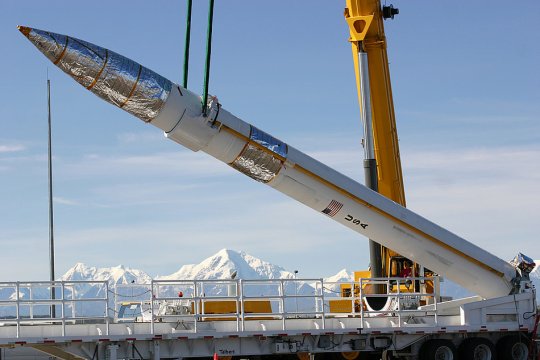
.
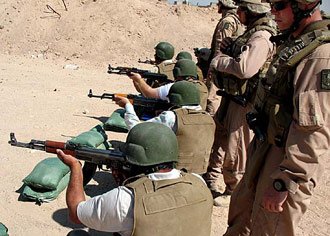
Marines train Iraqis to keep judges safe
BAGHDAD
It’s not news to read that politicians, famous athletes and even entertainers have bodyguards protecting them from dangerous people, but in Iraq, judges need protection from the same people they sentence.
This is why the Al Qa’im court system has a new personal security detachment trained by Marines of Viking Red Section, Mobile Assault Platoon, Regimental Combat Team 2.
“Part of setting up Iraq’s infrastructure is creating a normal working society,” said U.S. Marine Cpl. Dustin Barlag, a Cincinnati, Ohio, native, and vehicle commander with MAP. “A normal working society protects its people by sentencing criminals in a court of law.
“As these judges are sentencing criminals, their lives get endangered more and more,” Barlag said. “If Iraq’s judicial system is to be fair, but stern, the judges need to feel safe from any reprisals. This is why there was a PSD created for the judges.”
The newly appointed PSD of Al Qa’im’s courts were eager to learn from the experienced Marines, who had been trained in personnel-protection techniques by a private security firm.
Recent Comments